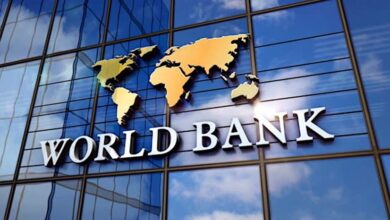Ghana’s economic prospects on track amid challenges

Ghana has made significant progress towards economic stabilization, addressing severe macroeconomic imbalances that peaked in 2022, according to the 8th Ghana Economic Update launched by the World Bank in Accra.
The report highlighted the country’s surge in public debt, primarily driven by fiscal responses to external shocks and the loss of access to international financial markets, which led to debt distress, dwindling international reserves, and rising inflation.
Titled “Strengthening Domestic Revenue Systems for Fiscal Sustainability,” the report detailed the significant macroeconomic policy adjustments implemented to tackle these challenges. Supported by an International Monetary Fund (IMF) bailout program, these reforms included a comprehensive debt restructuring program, fiscal consolidation, and substantial structural reforms.
Despite these measures, the economic crisis adversely impacted poverty reduction efforts. Weak growth and constrained government spending affected living standards, with poverty levels (measured at the international poverty line of US$2.15 a day) estimated to reach 30.3 percent in 2023, an increase of 3.5 percentage points since 2022. Projections indicate further deterioration to 33.2 percent by 2025.
The report noted a modest economic recovery in 2023, aided by solid agricultural output and rebounding household consumption. However, economic growth decelerated to 2.9 percent in 2023, down from 3.8 percent in 2022, reflecting the crisis’s impact and macroeconomic adjustments. The industrial sector contracted by 1.2 percent due to delays in developing new oil fields, while the services sector grew by 5.5 percent and agriculture by 4.5 percent, despite challenges such as the breakout of swollen shoot disease in cocoa and lower overall crop yields.

On the expenditure side, resilient household consumption growth of 7.8 percent and reduced imports (1.2 percent below 2022 levels) were offset by flat exports of goods and services and a notable deceleration in both private and public capital investments, as gross capital formation shrank by 14.7 percent year-on-year.
The path to recovery remains challenging, but the report emphasized Ghana’s commitment to economic reforms and international support, highlighting a concerted effort to stabilize the economy and mitigate the impacts on poverty and living standards.
Fiscal consolidation remained broadly on track in 2023, with rapid expenditure reduction and the implementation of comprehensive debt restructuring and revenue-enhancing policies. A sizable, front-loaded fiscal consolidation plan was initiated, driven by a significant reduction in expenditures by 7.9 percent of gross domestic product (GDP) from 2022 levels. The restructuring of domestic debt and the implementation of a moratorium on external debt servicing resulted in a marked decline in interest payments from 7.4 percent of GDP in 2022 to 3.2 percent in 2023.
Beyond interest payments, expenditures in 2023 were modestly restrained. Wage negotiations moderated public sector wages, and improvements in public procurement helped reduce spending on goods, services, and investments. Revenue policies contributed to an uptick in revenues in 2023 by 0.3 percent of GDP, as enhanced direct tax collections offset the impact of weak economic activity and a shortfall in oil revenues. Provisional fiscal data for the first quarter of 2024 showed a fiscal deficit of 1.8 percent of GDP, slightly above the target of 1.7 percent due to lower revenues.

The report highlighted the financial sector clean-up’s high cost, with large losses in the power sector posing an ongoing fiscal burden. Financial sector recapitalization amounted to an estimated 7.1 percent of GDP in fiscal costs between 2017 and 2021. Banks’ capital was impaired by the domestic debt restructuring in 2022, but recent strengthening due to high profitability has helped, although rising nonperforming loans pose ongoing fiscal risk. The power sector has emerged as a significant fiscal burden, costing an average of 1.7 percent of GDP annually due to persistent losses.
Surplus installed capacity under expensive take-or-pay contracts, underpricing of electricity, and subpar performance of distribution companies have led to growing sector arrears. Delayed settlement of these arrears has undermined the reliability of power supply, imposing costs on and constraining the output of Ghana’s business sector.
Overall, while Ghana’s economic stabilization efforts have yielded some positive results, significant challenges remain, requiring continued commitment to reforms and support from international partners.




